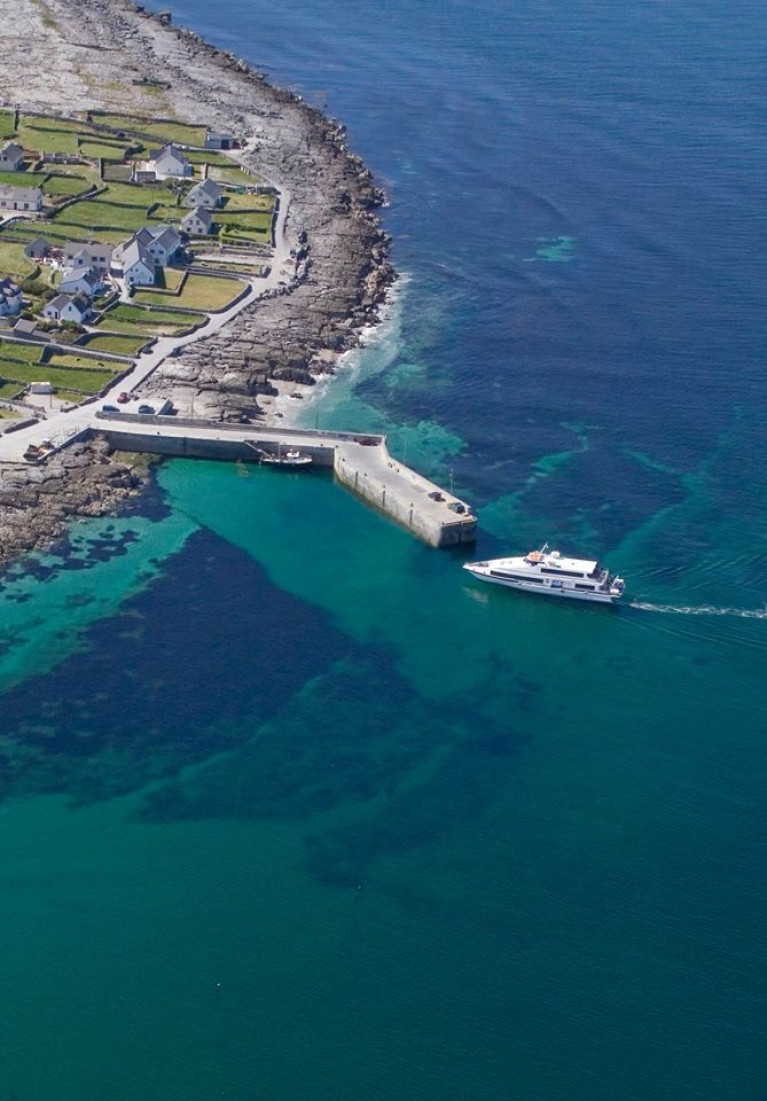Displaying items by tag: Lockdown
Government's Lockdown Easing Provides Little Clarity for Sailing
Although the summer sailing season draws closer and anticipation builds around a returning to training and competition, there was little concrete for sailing in the cautious government easing of COVID restrictions announced last night.
On Dublin Bay, Ireland's boating capital, the calendar says boats will lift-in at Dun Laoghaire Harbour on April 10th to be followed by the first ISORA Coastal Race on April 17 and for DBSC to start its summer season on April 24.
It's certainly a nice idea and a lot better than staring at the four walls. Or watching Dun Laoghaire pier strollers, cyclists and sea swimmers all currently partaking of the sea air in their droves. With our knowledge of how safe sailing can be from 2020, the view is that organised sailing, training or even racing can't be far behind. Surely?
Sailing is not the enemy at the gate. On the contrary, it is a low risk, non-contact outdoors activity which is what the Government's Sport Expert Group has been told through the Federation of Irish Sport submissions.
Even though we know that there is little difference between sailing in training and racing modes, the sport is reliant on the not so small matter of lockdown measures easing from Level Five to Level Two (when racing is permitted) but, as widely anticipated, this did not materialise in last night's announcement.
It certainly doesn’t look like organised sailing can be underway anytime before April 26 at best and only then if sailing is categorised as a 'distance sport' like golf and tennis that were specifically mentioned by the Taoiseach last night.
Obviously, club administrators will take time to chew over what this easing can mean for Irish sailing but reaction gathered by Afloat after the easing announcement ranged from shoulder-shrugging to a need for more action: "Nothing new as far as I can see", "Not sure", "Could start in May, depends on interpretation", "Sailing needs to be linked to Golf"!
The Government has announced the phased easing of some Covid-19 restrictions during the month of April.
They plan to continue this cautious approach, gradually easing restrictions, while a substantial level of the population are vaccinated during April, May and June, after which, it should be safe to reopen society more widely.
The Government has announced that from April 12 people will be allowed to travel within their county or within 20 km of residence if crossing county borders.
The Taoiseach said from April 19 some additional high-performance training will be allowed, including senior inter-county GAA training to facilitate national league competitions starting in May.
He said training for high performing athletes approved by Sport Ireland will also be allowed.
Mr Martin said from April 26 outdoor sports training for under 18 can begin again.
Some training will be allowed in May but competition will not be permitted initially.
He said golf and outdoor tennis can be played and there will be a return to 'distanced sport'.
But it remains unclear as to how sailing will be categorised in all of this.
2021 Regatta programmes
For regatta organisers who are keen to finalise programmes, there still remains a lack of clarity. Likewise for club leagues which are the backbone of the scene. Ann Kirwan Commodore of DBSC told Afloat, "Despite the lack of clarity in the Government announcement, DBSC is still hopeful that we may begin our season in some form before mid-May".
It is anticipated that bars and restaurants will not open till July, creating a problem for the shoreside segments of any events scheduled prior to that.
Logistics
Certainly in Dun Laoghaire, boat owners boats who live outside five km of the harbour will not be able to return to boats until April 12 under the new restrictions, two days after the scheduled lift in.
Marine industry suppliers are also caught between a rock and hard place. Sailmakers, for example, are currently closed, so sails left in for winter servicing or repair may yet not be back on boats. Will sailmakers for example we be allowed to open and deliver these sails?
Trades and chandlers are providing the regular pre-season service against the odds and battling COVID restrictions and slow delivery of spare parts due to Brexit in a bid to be ready.
Even though we may now have to defer some early racing dates, these are easily moveable and there's a logic in originally setting them. As Peter Ryan of ISORA told Afloat recently, "it's important to put a date down for people to aim for". He's right. Without dates, the risk is the racing calendar will drift and the early season be lost altogether.
A number of offshore islands have gone into lockdown due to the coronavirus pandemic with tourists and holiday home owners being discouraged from travelling there.
Ferry companies serving the three Aran Islands (Inis Mór: see story) and Inishbofin have agreed to discourage tourists from travelling during the crisis.
Island leaders have stressed that there are many vulnerable people living offshore and that logistically they may not have the same access to testing and care as people living on the mainland.
For more click the Irish Examiner here
























































